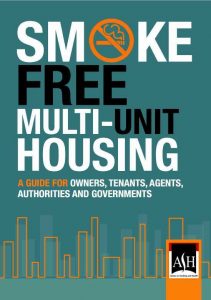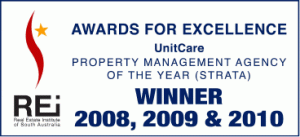Case Studies & Blog


The following are summaries of calls and visits to our offices from unit owners (not UnitCare clients at the time), who are fed up with their manager. Also included are court cases and stories arising from poor management of groups to which we have recently been appointed.
We will accept any credible feedback from managers and publish corrections if substantiated.
February 2017
Strata Manager jailed for two years and eight months for stealing $500,000.


This article appeared on the ABC news site in early February 2017
A former director of a Bunbury property management company will spend at least 16 months in jail, after stealing more than $500,000 from the family business.
Sheree Lee-Anne Edwards stole the money from WA Strata Management in Bunbury, where she was co-director of the company alongside her in-laws.
The District Court in Bunbury was told the money was taken from the company’s trust account over a 16-month period, beginning in March 2015.
Edwards was charged with 83 counts of stealing as a director or officer of a company, an offence which carries a maximum jail term of 10 years.
The amounts stolen ranged from $562 to $25,000 and were disguised as payments for utilities and other services.
Edwards’ defence lawyer spoke about his client’s lack of criminal record and the deep shame she felt as a result of her actions.
The court was told Edwards was in a tough financial situation, with a hairdressing business she had bought into under strain, and her husband unemployed at the time.
The prosecution argued Edwards had used only a small portion of the stolen money for the struggling beauty business, and on one occasion she already had $80,000 in her bank account when she transferred more money from the company account.
In handing down his sentence Judge Michael Gething noted that $412,000 of the stolen money had been repaid by Edwards with help from her family and by selling her assets.
Taking into account an early guilty plea and her personal circumstances Judge Gething ordered Edwards to spend two years and eight months behind bars, describing her offences as “deliberate, systematic and planned”.
Edwards will be eligible for parole on May 30 next year.
UnitCare Comment:
Unit owners should be seeking a monthly ledger of their corporation’s account, along with access to paid invoices online or supplied in paper form. We suply the ledger to the Treasurer in all our client groups. Officers and the Management Committee have online access to all paid accounts. This level of transparancy makes theft through false invoices difficult if not impossible.
November 2016
Licensing of Property Managers.
We are delighted to see that the State Government has agreed to the licensing of Property Managers (rental agents).
Click on the following links for media releases from the REISA & SA Governmentl
September 2016
Lifeline – 8 out of 10 Australians say loneliness is increasing: new survey.
A disturbing report reinforcing the need to slow down, take eye of the screen and reach out.. Strata living provides an opportunity to support one another.

Practices for ensuring apartment fire safety were “totally ineffectual” and had caused unsafe buildings to be approved.
NSW fire certification to undergo a total overhaul after damning review – need for same in South Australia. Self regulation is no regulation.
Sydney Morning Herald 21/9/2016
September 2013
Working Bees – a good idea or not?
When you live in a strata community some time sooner or later, someone will suggest a working bee. This is a terrific way to ruin both a garden and a community. Those attracted to a gardening bee will be terrorists who like using sharp objects to prune plants within an inch of their lives and will have no regard to the time of year for these near executions. In the blazing summer sun the attacks will take place.
Those who organise the event will be bitterly disappointed that the turnout is so poor. This will make them angry and in an episode of negative thinking so often the habit of leaders, they will interpret this as a lack of community sprit and pride and wish a pox on the houses of the non-participants. The more likely scenario is that the non-attendees don’t care for gardening and would rather pay for the service to be done by professionals but think if others get joy from the exercise, then each to their own. Bad-will has been generated from good intentions.
Posted by Michael Teys
www.teyslawyers.com.au
Posted on 09-19-2013
September 2012
Death on Common Property Who Pays?
How can you help prevent you and your Corporation being sued when a person dies or is seriously injured at your group.
A case study may help. A $10 latch and 10 minutes work would have saved a boy’s life
Iman Akter Mostafa, aged three, died when he fell from a window of a strata scheme in Kogarah in 2009. He fell because the window had no latch/stop to prevent a child from opening it sufficiently to fall out.
Who is to blame? Some case law helps in this matter. In the case of Wyong Shire Council v Shirt (1980) 146 CLR 40. This case established some principles.
1. Who dies?
2. Obviousness of risk
3. Probability of risk
4. Magnitude of risk
5. Cost or inconvenience of avoiding risk
Applying these principles to the Iman case
- Who – The child of a tenant to whom a duty of care is owed
- Obviousness – Fly screens can’t withhold the weight of a child
- Probability – One children’s hospital reported 28 such deaths in 1 year
- Magnitude – Risk is greatest between 2-4 years. Toddlers are top-heavy so severe cranial & skull injuries accounted for 38.8% of all injuries resulting from falls from windows & balconies 1998-2008.
- Cost – $10 & 10 minutes work for a latch to prevent the window opening more than 100mm.
In cases of bodily injury the defendants will be the strata or community corporation, their management committee, body corporate manager and property (rental) manager.
Body corporates and their committees need to:
- put in place safety policies
- maintain all common property as and when required. Putting off repairs and works will not satisfy the law.
At UnitCare we are undertaking site visits and producing a photographic report for owners and committees. Our reports focus on safety issues and maintenance needs such as the state of timber work, balconies and stairs.
August 2012
Manager Fails to Collect $400,000 in overdue levies
A prestigious group of 70 units here in Adelaide has levy arrears of $400,000+. This debt has accumulated in just the last four years.
Michael Teys from Teys Lawyers stated that “this is one of the worst cases of levy neglect I have ever seen”.
Mr. Teys joined Gordon Russell to help represent concerned owners at a general meeting of all owners. The meeting was called by our concerned clients.
The body corporate manager, his CEO and their lawyer attended the meeting.
In this case the manager had failed to vigorously pursue debts owed by the developers since the inaugural meeting. This is despite the manager being given the authority to pursue the debts with penalties.
The debt for this group equals all annual income for the body corporate. This is a delinquency rate of 100%.
The manager failed to provide owners with any detail on how the debt collection proceedings were proceeding.
The balance sheet supplied by the manager was in error. The arrears reported as if it was the end of the month. The meeting was on the 6th, 24 days before the end of month. The difference was $97,804! Surely a manager can produce a balance sheet that accurately reflects the corporation’s position at the day it is printed?
Owners were finally sent to the debt collectors just weeks before the meeting of the 6th. We found that many were not the registered owners. A search of the Lands Titles Office showed many errors in the manager’s owner list. With the wrong owners sent for debt collection the process must commence all over again.
The result is a corporation that is financially stressed with discord between owner occupiers who have paid their levies, and developers who have not.
The meeting generated greater support amongst non-investor lot holders, better governance by the manager and increased pressure on lot holders to pay their arrears.
Teys Lawyers and UnitCare will continue to provide the non-investors with all the assistance they need to ensure their Corporation is properly governed .
The adjacent table is from Teys Lawyers. Unit owners and management committees can use this table to also assess the performance of their group and their body corporate manager.
Here are some suggestions for effective levy recovery
- Develop a collection policy to hide behind
- Stop the dance of the delinquent debtor
- Be firm but fair in collections
- Budget for the inevitable
- Be consistent with your collection policy
- Be seen to be consistent with your collection policy
- Do exactly what the policy says when the policy says
- Don’t do things that are not in the policy
- Once the debt collection agency and or solicitors are involved, let them do the barking
We strongly recommend that all strata and community title groups develop and implement a levy collection policy.
UnitCare & Teys Lawyers can help with the development of a debt collection policy.
July 2012
Lift – who owns it? The Primary or Secondary Community Corporation
Recently we were appointed as body corporate manager for a large group that is a mix of commercial and residential lots in a two tier community title.
A lift services both corporations. The lift starts in the basement and finishes on the top floor of the apartment group. Lifts costs a lot of money to maintain ad refurbish.
A reading of the by laws revealed that the developer intented that the apartment owners only would be entirely liable for the maintenance and all related costs for maintaining the lift.
By Law” The Community Corporation shall be responsible for providing and maintaining the lift to service the Residential Lots “
Given it is not for the exclusive use of the apartment owners we suspected that the by-law was
Section 41 (e) (i) of the Act indicates that if the by-laws of a secondary scheme are inconsistent with the scheme description of the primary scheme, which includes the plan of subdivision, the former is invalid. Given the primary scheme description indicates that the lift is part of the common property of the primary scheme, by-law 13 of the secondary corporation is invalid. The by-law does not necessarily have to be removed from the record, although it would be better if it was. Being invalid, it should simply be ignored.
June 2012
Strata & Community Title reforms passed by Parliament (view the legislation in full)
Reforms to the Strata & Community Titles Acts have passed through Parliament. The legislation is at the time of going to press yet to be proclaimed and as such is not yet in force. We understand that this will occur when the regulations are complete.
We have canvassed the need for reforms and legislation over the past 20 years. We have reviewed the legislation for what the Attorney General put to the Parliament and what the Parliament passed. We understand that some managers heavily lobbied the upper house to protect their management rights.
Click here for our summary and new legislation
May 2012
Manager’s poor training puts owners at risk
This month UnitCare Services was appointed as body corporate manager for a large group just a few years old.
The group is a mix of commercial and residential lots in a two tier community title.
When we received the records…
- some $50,000 of levies were owing. Owners advised us that the manager had not sent out levy notices since late last year.
- the two community corporations (primary & secondary) have been treated as one.
- the residential group appears to have been paying for services, for which the primary group is responsible.
- the insurance was at risk of being cancelled. This was due to the premium being financed. We were advised that the developer had not made payments from some months.
- the residential group had not had its inaugural meeting.
We believe that all of these problems could have been avoided if the corporations had been established properly…
- inaugural meetings for the primary & secondary groups
- representatives appointed from the secondary to the primary corporation
- ownership of common property resolved to ensure the correct parties sign service contracts for lifts, cleaning, fire monitoring etc.
The proper establishment of the corporations would have seen the developer hand over responsibility for paying the insurance premiums and all other expenditure.
It is disappointing to hear that national standards for body corporate managers has been delayed until mid 2013.
Note: The developer still owns around half of the apartments. Some of the commercial lots are occupied.
Groups mixed up – update:
The matter (see previous months) has concluded proceedings before the Magistrates Court. Our client got access to all of its records. By agreement with the Magistrate our firm scanned all documents and made copies for the other groups.
The owners of the three groups and two townhouses have, as of this date, failed to find sufficient goodwill to settle on a distribution of some $90,000 being held by their previous manager, that would be the one who contributed to the mess in the first place.
March 2012
Second hand smoke at unit groups
Recently ASH, Action of Smoking & Health released this publication to help unit owners.
Article 2d of the Strata Titles Act states… A person bound by these articles must not interfere, or allow his or her customers, clients or visitors to interfere, with others in the enjoyment of their rights in relation to units or common property. Community Corporation by laws may have similar wording. Common law may also cover this matter.
We advise body corporates to seek legal advice should they become aware of a potential problem with second hand tobacco smoke at their group.

Useful lawyer website
Last year I came across a website that I have found quite useful. The address for the site is www.teyslawyers.com.au.
Teys Lawyers is based in new South Wales and specialises in body corporate matters. Despite the NSW focus there is often useful points of law and generally helpful information that may apply to South Australia.

I believe it may be worth subscribing if you are an officer or body corporate manager.
January 2012
Manager – poor practice
Recently we were sorting out the records for a new client who had left one of the small low fee body corporate managers.
The records were in a poor state. There was an incomplete financial history. The reports to hand had been printed on an old dot matrix printer with a worn ink ribbon. The software used was for managing rental properties and treated owners as tenants. There was no evidence of an audit of the funds.
New laws regulating body corporate managers will come into force this July. We hope this sees a more professional approach to the care of unit owners funds and property.
Funds investment scam
Recently we were sorting out the records for a new client who had left one of the larger body corporate managers.
We were disturbed to find that the manager was taking more than a quarter of the interest earned by the group on its funds. The table below shows the last two years figures.
|
2010
|
2011
|
|
| Total interest earned |
$1,484.00
|
$2,041.00
|
| Manager’s funds investment fee |
$ 411.79
|
$527.75
|
| Percentage charged |
28%
|
26%
|
Over this two year period their manager took $939.54. The percentage charged has risen from 15% in 2008 to the current 26%.
The manager’s contract details the fee as ‘A funds investment fee of 1% per annum of the average balance of funds invested by the Body Corporate in the previous 12 months.‘ However the ledger of fees shows up to six investment fees charged in any one month. The ledger entry states ‘Funds investment fee for interest credited for the period ….‘ This is at odds with ‘average balance’ stated in the contract. The financial records make it clear that the fee is based on a percentage of the interested earned.
We are considering advising our client to refer the matter to Consumer Affairs.
Some other managers have adopted this practice. The more money a group raises the more fees they pay the manager. The manager makes no effort to achieve this income. The majority of clients deposit their levies directly into a manager’s bank account.
At UnitCare we have 85% of client funds in a high interest term deposit. This pays interest to clients every month. There is no cost to our firm to maintain this service. We pass on the full interest with no penalty or fee for investing our client’s money.
December 2011
The Power of Potential by Susan Mitchell
The following is an opinion piece by South Australian author Susan Mitchell. It appeared in our local internet newspaper www.indaily.com.au in December 2011. We believe it is worth a read. Click here.
Don’t email when it is urgent:
The popularity of email and its use from smart phones is on the rise. Some owners and rental managers are emaling us with urgent jobs. These have included blocked sewers. We ask that owners and agents call our office with any urgent matters so
that we can act immediately. Emails may not reach us or may be read later in the day. This can result in problems & risks for residents and owners. You MUST phone in order to get immediate attention.
Illegal building works:
We are experiencing an increasing number of owners who undertake works on their units or lots despite the need to seek Corporation approval. This is despite our office advising new and existing owners of their rights and responsibilities.
A recent case saw a new owner undertake demolition and construction works within weeks of taking possession. This involved the removal of windows and walls, the destruction of a large common tree and occupancy of common property.
The matter ended up in the Magistrates Court. The owner was lectured by the Magistrate on the consequences of illegal works. The Magistrate indicated that if the owner failed to comply with the Court’s orders he could face jail.
The management committee negotiated undertakings from the owner whilst at Court. The Magistrate is bringing the matter back on early in 2012. This will keep the pressure on the owner to comply with the settlement.
Owners who flaunt the law risk prosecution and a good deal of animosity from their fellow owners.
November 2011
Manager throws unit owners out:
This month we have been appointed to a small group in Kensington. They have come over from a large management firm. They advised their manager at their annual general meeting (AGM) that they were changing firms and asked him to help them complete the business of their AGM. He refused and had the owners leave the manager’s office.
Later when we forwarded the closing financial statement to all owners they rang horrified to find that their outgoing manager had charged them $132 for the meeting, as if the meeting had run its full course. This added insult to injury.
Unfortunately this is an all to familiar tale. We often hear of managers who hearing their client no longer want their services are met with rudeness, disrespect and refuse to see the owners through the meeting, and then charge them a full meeting fee.
Our suggestion to managers is see off your clients gracefully, help them finish their meeting. Remember that this is the last opportunity to make a good impression. Remember they are leaving out of frustration with your firm. Don’t give them another reason to complain to their friends and associates about you.
Manager fails to face developer:
This month we were appointed by a group at the end of their tether. They reported that their previous manager had failed to pursue the developer over some serious deficiencies at this renovated group.
The local Council is now pursuing the Corporation to install fire walls and fire equipment.
We will be pursuing the developer who may well be willing to undertake the works. Delays can result in the statute of limitations preventing the owners taking the developer to Court.
We will look to ensure that the group has legal redress if need be.
Shocking paint job:
This month we were appointed by a group who suffered a shocking paint job. They advised us that the painter recommended by their manager had failed to prepare the external timber work, including the bay windows.
We understand that they simply painted over the old paint regardless of its condition.
Their manager collects a commission from contractors that they advise pays for a works supervisor. Given the large income this generates it’s a pity it failed to deliver for the owners at this group.
October 2011
Multi owner contempt for others – update:
The matter went to Court again this month. We supplied the Magistrate with the auditor’s report and minutes of the annual general meeting we helped to convene.
The Magistrate made his final orders and closed the case:
- that the multi unit owner to pay the $2,750 audit account.
- that the multi unit owner have his voting rights suspend for 12 months
Whilst we expected the audit costs to be awarded the suspension of voting rights was a surprise.
Let’s hope the orders give the other owners an opportunity to address their concerns including long overdue maintenance.
Groups mixed up – update:
The matter (see previous months) continues before the Magistrates Court. The outgoing manager who treated 3 strata groups as one, complained to the Magistrate about our blog. At the Magistrate’s request we will not be commenting further on this matter until the parties have unraveled the mess to their satisfaction.
September 2011
Manager fails to claim $4800 insurance loss:
This month we credited $4,866 to the account of one of our clients. This was the proceeds of an insurance claim we pursued for this 5 unit group in Ascot Park.
The group came to us last year. They reported that their old manager had had their maintenance firm attend to replace a collapsed ceiling. The cause was a burst pipe in the roof. Building damage caused by a leaking water pipe is covered by the group’s insurance policy.
Their previous manager failed to make a claim despite their contractor clearly identifying a water leak as the cause of the collapsed ceiling.
$4,866 is a lot of money for a small group especially as they need to attend to some fence works.
August 2011
Manager puts lives at risk:
This month we were appointed by a group of 9 units in the northern suburbs of Adelaide. The owners met with us full of frustrations over their manager’s carelessness with their affairs. Amongst the issues to come to light were:
- Failure to pay telephone accounts for the lift and fire alarm services. This finally saw the telephones disconnected. The security service expressed grave concern over the risks to residents. The manager charged the corporation the reconnection fee.
- The manager failed to pay the gas bill for the common hot water service. You guessed it, no hot water, call out fees for a plumber amounting to $400+ and the manager had the corporation pay the reconnection fee!
This manager has no shame. They should have bourne the cost of the reconnections and explained to the owners why they had failed to pay the accounts and how it could be avoided in future.
July 2011
Manager delivers high fees and almost no interest on $7,500 savings:
This month we were appointed by a small group of 6 units in the eastern suburbs of Adelaide. In setting up the group, using the records from their previous manager, we were a little shocked to find the following:
- Bank interest of $7.76 for the month of June 2011 based on $7,498 of funds. This is an annual rate of 1.24%. I checked on one of our clients with a balance of $7,276 and they received $45.46 for the same month. That is $37.70 more per month and $452.40 more a year!
- The manager charged an exit penalty of 3 months fees despite the group having waited 3 months for the changeover.
- The manager charged $192.61 for just 4.5 months of disbursements. They charged for emails, printing bank reports, incoming faxes and a lot more. That works out at around $510 per annum divided by 6 units = $85/unit per annum. I believe this is a rip off. I would expect disbursements to be around $20 – $40 /unit per annum. Charging to send an email – what next?
Unit owners deserve better value for money and less of these hidden charges. I suggest you have your manager supply a monthly ledger of all income and expenditure so that they can be held to account for your groups costs and bank interest income.
June 2011
Multi owner contempt for others – update:
The matter went to Court again. This time the husband of the Secretary/ Treasurer attended.
The Magistrate was annoyed that the bank statements and monies had not been handed over. The husband explained that his wife was in Queensland and that he had bought all the records he had to hand however there were no cheque books or bank statements.
The Magistrate made orders.
- banks to hand over all bank statements required by the auditor.
- banks to deposit any remaining funds into the auditor’s trust account.
- A levy be raised to pay the insurance premium
- Intention to issue a warrant of arrest for the ex Secretary/ Treasurer for contempt (not complying with the Court orders and failing to attend)
The auditor is now serving the orders on the two banks concerned. The matter will return to Court in relation to the contempt matter in the near future.
Groups mixed up – update::
The matter went to Court again this month. This time the strata manager attended. The following is supplied by our client from notes made at the hearing…
The Magistrate ruled that The Indenture is the legally binding document and all decisions regarding this case will be based on it.
The following is a written record of the exchange between the Magistrate & the manager: (M = magistrate T = strata manager)
- M. Have you actually studied the indenture?
- T: Oh yes Your Honour
- M: Is the Indenture relating to maintenance of the common properties?
- T: Oh yes Your Honour
- M: Is this the way in which you are treating the strata developments?
- T: No Your Honour, we have been treating them in accordance with the intent of the original owners.
- M: Mr …, you can forget about the intent of the original owners. The Indenture is a legally binding document and all decisions in this case will be assessed on the Indenture.
Our client was asked to go away and work out ‘how much you think you are entitled to in this matter’. The Magistrate asked T about the possibility of owners being asked to reimburse the money they had had spent (illegally) on their properties. T did not like that idea at all. T asked the magistrate if he could have a copy of the financial work I had done based on the invoices. The Magistrate did not quite see eye to eye with him on this point.
Note: Our clients have now engaged legal counsel with a view to recovering all costs from the manager to make good their neglected group.
May 2011
Multi owner contempt for others:
An owner in a self managed group of 10 units approached our office for help dealing with governance issues at her group. The secretary and treasurer is the wife in a couple that own 4 of the 10 units. Our client became concerned when asked to co-sign cheque’s made payable to the secretary & her husband for $1,900, invoices unseen. Further there had been no AGM for the last 2 years and few levy notices. The state of the finances was unknown. Our client wrote to the officer seeking details. This letter was ignored.
We assisted in crafting an application to the Magistrates Court. This was heard this month. The magistrate expressed grave concern over the attitude of the husband and wife using their 4 unit ownership to dictate terms to the rest of their fellow owners. He made orders that stripped the secretary and treasurer of her positions and that she hand over the books and funds to Messenger Zerner (accountants) for an audit. The matter has been adjourned awaiting the audit. The officer has handed over some of the records.We have been asked by the auditor to assist them with the records to enable the audit. We have served notice on the ex secretary/treasurer for the balance of records including recent bank statements. We will keep you informed of developments.
Groups mixed up – update::
The matter went to Court this month. The strata manager failed to show up in Court. The magistrate rang the manager who explained that his supervisor was supposed to attend. Following questioning by the magistrate it was revealed that the manager had not kept separate records and funds for each strata group and had not done so since they commenced in 1987. They have treated all 3 groups and the townhouses as 1 group, which they called a ‘hamlet’.
The magistrate ordered the manager to make the records available and to supply the owner list. The manager protested, he claimed that they would have to supervise the reading of the records and have to charge for this. The magistrate told the manager that they would not charge and would cooperate.
The magistrate expressed concern at the state of affairs and advised the manager that they had poorly advised their clients on the intention of the Indenture.
The matter has been adjourned to enable the owners to investigate the records. We wonder how the egg will be unscrambled. We will keep you informed.
April 2011
Groups mixed up – audit needed::
Owners in a group of four approached us following receipt of a demand from their manager for a large levy. The levy is to pay for works in adjacent buildings. A review of the documents revealed an agreement (Indenture) the developer had put in place back when they were building the groups in the mid 1980s.
Owners have been advised by their strata manager, over many years, that under the developer’s indenture, they share a financial responsibility for the maintenance of the adjacent groups of units and the two 2 storey townhouses on the adjacent street.
We reviewed the Indenture that was enacted on December 18th 1985. It was noted that under ‘Definitions’ common property was defined as areas “A” (parking at the north end of the group) and Area H and Area F (walkways and driveways) on the two adjacent strata groups.
The indenture goes on to state that “Total Common Property” shall mean the aggregate (sum of) of common property of the respective groups. The owners of the 4 unit group are only liable for their share of the maintenance of the “Total Common Property” being walkways, driveways and parking areas as defined being Areas A, F and Area H.
It appears that the manager has confused the common property under the indenture and common property under the Strata Titles Act.
Deep concern was expressed that over the last 25 years owners have:
• paid out a lot of money to look after other groups’ property
• been misled by the strata manager over the intention of the Indenture
• failed to receive proper advice on the correct legal implications of the indenture
• not received a proper and transparent account of their funds
• led to a failure to maintain their group’s common property.
• suffered reduced sale prices as a result of a failure to maintain the common property at their group.
Owners resolved that:
1. The manager provide a ledger and supporting invoices for works undertaken on “Total Common Property” being areas A, F & H over the last 10 years.
2.The manager provide a ledger of all payments made by their corporation to maintain the “Total Common Property” being areas A, F & H over the last 10 years.
3. The manager provide a ledger of all payments made for maintenance works at their group over the last 10 years.
That should the manager fail to supply the above information within 14 days the Corporation will make an application to the Magistrates Court under section 41a of the Strata Titles Act for an independent audit.
Further the Indenture prescribes a Management Committee to collect and manage the funds to maintain areas A, F & H. Owners advise us that the manager has not caused meetings of the committee to be held.
We believe that only a thorough audit will uncover the extent of the problems created by a failure to seek proper legal advice on the meaning of the Indenture compounded by poor management advice & practice.
February 23rd 2011
Bobcat Turns Up:
We receive a call from an owner in a small group in Magill They call our office as they are distressed to see a bobcat in next door’s front yard. Some research reveals that there is a new owner. Settlement was some two weeks ago. The conveyancer failed to advise our office. This is required under the Strata Titles Act. We established who the new owner was from the vendor’s conveyancer and rang him. He was unaware of the need to seek approval for any external changes or structural work as he had not received our welcome pack.
We visited the group that afternoon however the contractors had left and no one was home. We have asked the owner to detail the works proposed and current and sent a stern request to the conveyancer to provide formal advice of the settlement.
We are most concerned that an increasing number of conveyancers are failing to advise our office of settlements. This leads to confusion on the part of the new owner, unnecessary anxiety to other residents and the old owner getting the strata levy accounts and overdues. Our observation is that trend commenced when conveyancers fees were deregulated. Discounting has seen conveyancers doing more with less.
February 18th 2011
Unlicensed Tradesman:
We receive a call from the Presiding Officer of a small group in the western suburbs. She is very upset that their manager sent an unlicensed person to replace their gutters. The owners had passed on the person’s details to the manager.
The manager charges an annual fee to this group of $51.70 for checking licensing and insurance. They have an external firm undertake this work. We understand the manager charges this fee to all their client groups. We estimate that this brings in, in excess of $70,000 per annum.
The Presiding Officer has advised us that the work is substandard and now needs further monies spent. She reports that the manager has explained that it is her fault as she found the contractor!
It never ceases to amaze us the many ways some managers find to blame their clients for their mistakes.
BC2 has a duty of care, and a system that clients pay for to check contractors. It is a mystery as to why they failed in this case. We believe they are liable for any resultant costs to owners.
February 17th 2011
Meeting Rort:
We received a call from an owner in a new Community Titled development of 17 lots in Aberfoyle Park. The owner is most distressed that the 1st meeting of his group has been called for 10am. He like many owners is unable to make meetings during working hours.
The Community & Strata Titles Acts take this into account…..
CTA 81(3) The day, time and place of the meeting must be reasonably convenient to a majority of the members of the corporation.
STA 33 (3a) A person or group of persons proposing to convene a meeting of the members of a strata corporation should take
reasonable steps to ensure that the proposed day, time and place are reasonably convenient to a majority of members of the corporation.
The manager has we believe breached Section 81(3) of the Community Titles Act. The possible reasons for this could be…
1: The manager is choosing this time to minimise attendance and so obtain proxies from those who are unable to attend, then be appointed to this new group with little scrutiny.
2: The manager does not want to work after hours.
The owner is seeking quotes from other managers. We advised him that the meeting could be declared illegal under section 81(3) We posted him a quote along with the extract of Section 81 of the Act.
Point of Law – managers are not authorised to call meetings. In this case the Developer as an officer is having the manager do so. Officers and the management committee can call meetings. See unitcare.com.au/bp_strata_meetings_notice.html
February 17th 2011
Failure to Act:
We receive a call from an owner in an established group of 13 in the foothills.. The owner is fed up with their manager failing to undertake authorised works. In one case a tree needed removal. The manager failed to act and later it fell on the neighbour’s new carport. The group is now stuck with a poor insurance record.
February 2nd 2011
Failure to Understand the Law:
we provide a pro-bono service for the local community legal centre (Roma Mitchell – Norwood) Early in February they referred a client for help in a dispute with their manager . The manager advised the owners in a letter that the general meeting held in January was ‘not a valid meeting’. The meeting had 2 of the 4 owners in attendance and proper notice of meeting had been sent to all owners. The manager went onto berate the owners and tell them that they would be responsible for the cost of any works the meeting had authorised.
The manager explained to us over the phone that she understood that maintenance matters required a ‘special resolution’ under the Strata Titles Act rather than that the meeting was illegal. We asked her to prove her assertion and she stated that she had asked the opinion of two other people. I referred her to Section 25 of the Strata Act and faxed her an extract of all the sections requiring Special & Unanimous resolutions.
Section 25: The functions of the strata corporation are as follows:
(a) to administer and maintain the common property for the benefit of the unit holders and, to such extent as may be appropriate, other members of the strata community.
There is no mention of a special resolution.
The manager later wrote to all owners advising them that the meeting was valid and that the urgent drain works were properly authorised. See unitcare.com.au/bp_strata_maintenance.html for more information and legislation.
The need for the licensing and training of strata managers is never more evident.
In this section we look at some cautionary tales of mismanagement.
We suggest you use the following as cautionary tales when considering appointing a new manager or renewing a management contract. See our Management Checklist for help protecting your assets and peace of mind.
Story: Manager helps developer stitch up new owners
The developer and body corporate manager hold a meeting of the Corporation before the owners have settled on their units. The owners paid deposits some years earlier however they were not informed of the meeting. The developer and manager committed the Corporation and its owners to a a 15 year contract with the manager, 25 years with a hotel manager and an open ended agreement with the Council to pay for the developer’s encroachment onto Council land. We believe that the manager failed to act in the best interests of the owners who would be paying their wages. Click on the video below (Channel 7 Today tonight May 2009) for details.

Story: Manager’s carelessness sees owners at risk of bankruptcy
The owners of a a 6 unit group suffered a public liability claim from a visitor using the external stairs. The claim alerted their insurance company to the state of the stairs and that their design and construction failed to meet the Australian Standards. The Corporation in early 2008 had accepted a quote and was raising some $40,000 when the strata manager wrote the following to owners on May 6th….
In September 2003 the corporation’s insurer sent a notice advising that unless the common area steps were upgraded to meet the Building Code of Australia 1996 then they would not be in a position to offer renewal of Policy 2 – Legal Liability or Policy 6 – Office Bearers Liability. The corporation held an Extra Ordinary General Meeting on 30 October 2003 to discuss this. At the 2004 Annual General Meeting a quote was accepted of $3,850 to install handrails to the steps as agreed with the insurer. They were installed.
At the 2005 Annual General Meeting approval was given to install additional lighting to the steps from the car park to the units. This was done.
On 27 February 2004 the insurer advised that they would diarise their files for two to three years time (2006 – 2007) re: the replacement of the steps. To date the corporation’s insurer has not implemented the warning given in September 2003 not to offer Liability insurance cover or Office Bearers Liability cover and the 2008 insurance renewal has been received and paid.
The improved lighting and the handrail has clearly made a significant improvement to the safety level of the steps since 2003.
The current corporation owners if you so wish, may determine that there is no current obligation upon the corporation to replace the steps and you may resolve not to do so. If in the future ### or some other insurer does impose a requirement upon the Corporation to replace the steps then the Corporation will need to address this issue at that time.
As to monies collected to date our view is that if the Corporation decides upon this proposal then those monies can be returned to the individual unit holders. If and when the situation arises that the steps need to be replaced then the Corporation would need to meet and resolve to fund the works. That would then be subject of an appropriate levy from the unit holders at that time.
The outcome was that owners in good faith accepted the manager’s advice and were refunded their levies.
The insurance company cancelled the public liability cover on renewal in early 2008 – a month before we became managers.
The insurance company have advised us that the manager at no stage in 2008 asked them if they were satisfied with the state of the stairs
This has left the owners personally exposed to any claims related to the stairs. We have had bunting erected about the stairs to warn all not to use the stairs.
Given the owners had agreed to the work and were raising the money, we are at a loss to understand the manager’s advice to owners. We believe the advice may be the basis of a claim of negligence against the manager and their firm should a stairs related injury claim arise.
Story: Manager fiddles whilst balconies rotting
The owners of a three storey group became aware two years ago that the balustrades on their balconies had rotted and were no longer safe. One of the owners contacted our office frustrated and concerned as their manager had collected the money but only half the balconies had been repaired.
We discovered that the manager had failed to ensure that the balconies could not be used and to date residents and their visitors still have access to the dangerous balconies.
Given that the owner had tried many times to expedite matters we advised her to take her concerns to the group’s insurance company as their Public Liability cover may be voided given the failure to prevent access to the balconies or undertake the repairs. We anticipate that the insurance company will give the manager a kick up the proverbial. If this fails then the matter needs to be referred to the Court for a breach of Section 25 – duty to maintain.
Story: Manager’s advice puts lives at risk
At an AGM in 2006 some owners in a multi storey group of units considered allowing unit owners on each floor to construct lockers on the common property about the lifts. Their manager advised the chair and owners ‘that only a simple majority was required’.
The meeting moved that ‘the common area on each floor be under the control and responsibility of the owners of the units of that floor. Any work performed on each floor must have unanimous approval of all units on that floor. Any construction made on the common area will be subject to subsequent unanimous agreement by units of the floor. If one person objects on the respective floor the construction must be removed’. This motion is recorded as carried with 15 votes for and 7 against.
This motion clearly breaches Section 26 of the Strata Titles Act in permitting common property to be alienated for the benefit of individual unit owners without the required unanimous resolution or regard to local fire and planning regulations.
Section 26(4) The strata corporation may, if authorized to do so by unanimous resolution of the corporation, grant to a unit holder an exclusive right to occupy part of the common property for a specified period.
Some owners have already undertaken works This is a breach of Article 5 of the Corporation’s Articles as follows…
5) The registered proprietor of a unit and every occupier thereof shall not:a) Use the common property or permit the same to be used in such a manner as unreasonable to interfere with the use and enjoyment thereof of other members of the corporation or occupiers of units or their families or visitors;
The Fallout: We acted for an elderly owner who has grave concerns for issues of fire safety and the use of common property without addressing leases, public liability, maintenance and changes of ownership. The manager refused to reply to our request to rectify the situation. Our client is now being blamed for tensions at the group. We believe the manager has failed in their duty to the Corporation and our client. The matter went to court. Some 18 months later the court ruled in favour of our client.
You have to wonder what unit owners get when they pay and pay every year for a strata manager !
Story: Owners denied their democratic rights
The developer of a community titled group of apartments sells their interest in the property to a related company to circumvent the law. The law on developers of community titles is: Section 87 (3) If the developer owns one or more, but not all, of the community lots in a community parcel he or she is entitled to the aggregate of the votes determined in accordance with subsection (1) in respect of those lots or to a number of votes equivalent to the aggregate of the votes determined in accordance with that subsection that may be exercised by all the other members of the corporation, whichever is the lesser.
The effect of this provision is that the voting power of the developer can never be greater than the combined voting power of the other members of the corporation.
In this case the developer’s related company had a meeting without inviting the owners who had paid deposits on the apartments. At this meeting it was agreed to bind the group and its future owners to: 15 years with a body corporate manager and 25 years with a firm supplying cleaning and caretaker related services and an in house letting agent
We understand that none of these contracts went to tender. The new apartment owners are now faced with substantial ongoing costs with contractors not of their choosing. We hope the owners can get some relief by taking the matter to Court. The manager assisted in this process by arranging the meeting and typing the minutes.
Story: Records of wrong group handed over
In the transfer of records from another manager to UnitCare we were surprised to discover archives from two other groups. The outgoing manager had charged exit fees of $99 that included the cost of checking the records for transfer. That manager refused to refund the charges despite admitting the error stating that they had ‘done the work’ and so should be paid for it!
Story: Refusal to provide owner list to Presiding Officer (Privacy Act)
A Presiding Officer in a group rang us seeking advice regarding his body corporate manager’s refusal to supply him with a list of owners at his group and their contact details. The manager stated that they could not do so as the Privacy Act prohibited it.
We have received legal advice that this is hogwash. The Privacy Act deals with the release of such information to a 3rd party. For example the Act makes it an offence for a manager to supply a Real Estate Salesperson with a list of owners at a group. The owners are the group and are entitled to this information.
We suspect that in this case the manager’s refusal was to thwart owners talking to one another and perhaps sacking the manager.
Click to view our legal advice
Story: Manager charges for services not delivered
Manager charged the strata corporation for preparing their income tax return however upon enquiry the new manager finds that the Tax Office has no record of the strata. The new manager applied for and received a Tax File Number & Australian Business Number after the change of management.
Story: Refusal to hand over ledgers – funds short
Manager refuses to supply the strata corporation’s financial ledgers when the Corporation transfers to a new manager. They deny that these are the property of the strata corporation.
Following a number of challenges the outgoing manager handed over the ledgers.
Since receiving the ledgers the manager has been asked to explain why the balance handed over is short of the final balance on the ledgers.
Story: Fees drawn 1 year in advance – funds taken from sink fund
Manager drew their fees 1 year in advance and before the AGM approved the management fees.
They then used the strata corporation’s sinking fund to prop up the recurrent funds to enable daily bills to be paid.
The records show that the manager took the fee each year on the 1st business day of the new financial year.
The manager does not report the totals for the Admin & Sinking Funds separately so the transfers were not revealed to owners.
Story: Manager keeps bank interest
Manager charges a fee that equals the interest the group earns during the year. The minutes refer to this however owners are clear that they never agreed to the manager keeping their interest.
The outgoing manager refunded the fee.
We often come across minutes that bear little relation to the meeting when it come to the managers fees and rights
Story: Group left uninsured by manager
Recently a two year old Community Titled group sacked their manager and appointed UnitCare. On inspection of the group’s insurance records it appears that the outgoing manager left the Corporation uninsured for some six weeks last year. We are also concerned at what appears to be no written authority to drop their cover by over $100,000. We have put these matters to the outgoing manager and asked for an explanation and for cover for the six weeks just in case a public liability claim comes to light. At the time of writing we have had no reply. Insurance is one of the most important services body corporate managers undertake, we are surprised at what appears to be a failure of the duty of care in this case.





